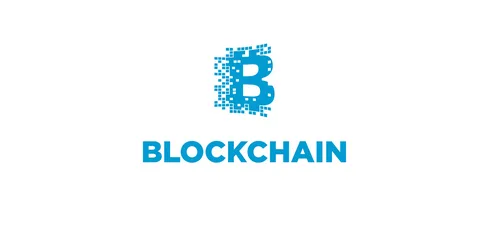Reimagining the UK Economy How Blockchain is Driving Innovation in Supply Chains Healthcare Security and Finance
Blockchain technology has rapidly evolved beyond its origins in cryptocurrency, emerging as a revolutionary force across multiple industries. In the UK, sectors such as supply chain management, healthcare, security, and finance are leveraging blockchain to address longstanding challenges and foster innovation. This blog delves into how blockchain is reshaping these industries, focusing on its impact in the UK and the trends driving its adoption.
Understanding Blockchain’s Role in Innovation
At its core, blockchain is a decentralized digital ledger that records transactions across multiple computers in a secure and transparent manner. By eliminating intermediaries, ensuring data integrity, and providing real-time access to information, blockchain has become a vital tool for innovation across industries. Its application is particularly significant in the UK, where economic and regulatory factors make blockchain a game-changer.
Blockchain in Supply Chain Management
Tackling Supply Chain Complexities
Supply chains in the UK are facing unprecedented challenges, from Brexit-induced disruptions to global trade uncertainties. Blockchain in supply chain management offers a solution by providing end-to-end transparency, enhancing trust, and reducing inefficiencies.
- Enhanced Traceability: With blockchain, businesses can track the movement of goods from origin to destination, ensuring authenticity and compliance. For instance, UK food supply chains use blockchain to verify the source of produce, building trust among consumers.
- Improved Efficiency: Smart contracts automate processes like payments and inventory management, reducing administrative burdens and delays.
- Sustainability: Blockchain enables companies to monitor and verify their environmental impact, which is crucial for adhering to the UK’s sustainability goals.

Real-World Example
UK retailer Tesco has adopted blockchain to track the supply chain of fresh produce. This innovation has reduced waste, improved quality control, and enhanced customer trust.
Blockchain in Healthcare
Revolutionizing Patient Care
The UK’s healthcare system, particularly the NHS, has been under pressure to modernize and secure its operations. Blockchain in healthcare addresses critical issues such as data security, interoperability, and patient empowerment.
- Secure Data Sharing: Blockchain ensures that patient records are stored securely and accessed only by authorized personnel, reducing the risk of data breaches.
- Interoperability: By creating a unified system, blockchain eliminates silos between healthcare providers, enabling seamless information exchange.
- Patient Empowerment: Patients can control access to their medical records, ensuring transparency and privacy.
Real-World Example
Medicalchain, a UK-based startup, uses blockchain to store and share electronic health records securely. This technology enhances patient trust and streamlines healthcare delivery.
Blockchain in Security
Strengthening Cybersecurity
As cyber threats grow more sophisticated, blockchain in security is becoming a vital tool for UK organizations. Its decentralized nature and cryptographic protocols make it inherently secure, offering robust protection against cyberattacks.
- Identity Management: Blockchain provides secure digital identities, reducing the risk of identity theft and fraud.
- Data Integrity: Immutable blockchain records ensure that data cannot be altered or deleted without detection.
- Decentralized Security: By distributing data across multiple nodes, blockchain eliminates single points of failure, enhancing resilience.

Real-World Example
The UK government has explored blockchain for securing public records and identities, ensuring transparency and reducing fraud in public services.
Blockchain in Finance
Driving Financial Innovation
The UK, as a global financial hub, is leveraging blockchain to revolutionize financial services. Blockchain in finance streamlines processes, reduces costs, and enhances transparency.
- Cross-Border Payments: Blockchain enables faster and cheaper international transactions, eliminating the need for intermediaries.
- Fraud Prevention: By ensuring transaction transparency, blockchain reduces the risk of financial fraud.
- Tokenization: Assets like real estate and stocks can be tokenized, enabling fractional ownership and democratizing investment opportunities.
Real-World Example
Barclays, a leading UK bank, has piloted blockchain for trade finance, reducing processing times and costs while improving transparency.
Blockchain in Innovation
Fostering a Culture of Innovation
Blockchain in innovation extends beyond specific industries, driving advancements in areas like renewable energy, education, and public services. The UK’s proactive approach to blockchain research and development positions it as a leader in global innovation.
- Renewable Energy: Blockchain enables peer-to-peer energy trading, allowing individuals to buy and sell excess energy directly.
- Education: Blockchain secures academic records, making them tamper-proof and easily verifiable.
- Public Services: Blockchain enhances transparency in government operations, reducing corruption and improving citizen trust.
Real-World Example
The UK-based Energy Web Foundation uses blockchain to promote renewable energy adoption, facilitating peer-to-peer energy trading and reducing reliance on centralized grids.
Challenges and Opportunities
Challenges
While the potential of blockchain is immense, adoption in the UK faces hurdles such as regulatory uncertainty, high implementation costs, and resistance to change.
- Regulatory Frameworks: Establishing clear guidelines is essential for widespread blockchain adoption.
- Technical Expertise: There is a need for skilled professionals to implement and manage blockchain systems.
- Scalability: Ensuring blockchain networks can handle large volumes of transactions remains a challenge.

Opportunities
Despite these challenges, the UK’s focus on innovation and technology offers significant opportunities for blockchain adoption. Government initiatives, academic research, and private sector investments are creating a robust ecosystem for blockchain development.
The Future of Blockchain in the UK
As blockchain continues to evolve, its impact on the UK economy will deepen. Emerging trends include:
- Decentralized Finance (DeFi): Blockchain is reshaping financial services, offering decentralized lending, borrowing, and trading platforms.
- Integration with AI and IoT: Combining blockchain with artificial intelligence and the Internet of Things will unlock new possibilities for automation and efficiency.
- Sustainability Goals: Blockchain will play a pivotal role in achieving the UK’s sustainability targets by enhancing transparency and accountability.
Conclusion
Blockchain technology is more than a buzzword; it is a transformative force driving innovation across supply chains, healthcare, security, and finance in the UK. By addressing pressing challenges and unlocking new opportunities, blockchain is reshaping industries and setting the stage for a more efficient, secure, and innovative economy.
As the UK continues to embrace blockchain, businesses and policymakers must collaborate to overcome challenges and harness its full potential. The future of blockchain in the UK is bright, and its journey is just beginning.




Post Comment